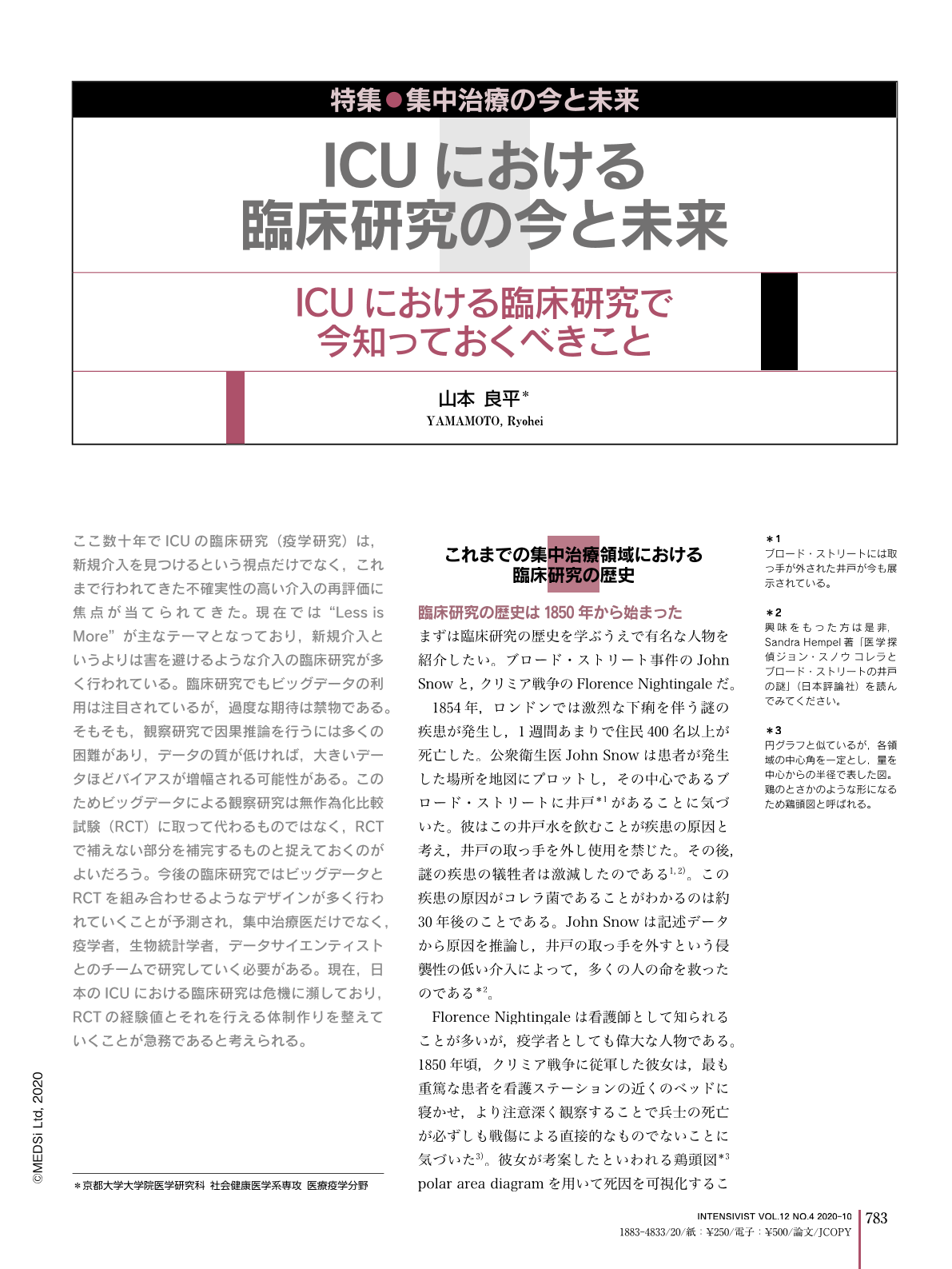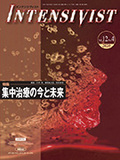Japanese
English
- 有料閲覧
- Abstract 文献概要
- 1ページ目 Look Inside
- 参考文献 Reference
ここ数十年でICUの臨床研究(疫学研究)は,新規介入を見つけるという視点だけでなく,これまで行われてきた不確実性の高い介入の再評価に焦点が当てられてきた。現在では“Less is More”が主なテーマとなっており,新規介入というよりは害を避けるような介入の臨床研究が多く行われている。臨床研究でもビッグデータの利用は注目されているが,過度な期待は禁物である。そもそも,観察研究で因果推論を行うには多くの困難があり,データの質が低ければ,大きいデータほどバイアスが増幅される可能性がある。このためビッグデータによる観察研究は無作為化比較試験(RCT)に取って代わるものではなく,RCTで補えない部分を補完するものと捉えておくのがよいだろう。今後の臨床研究ではビッグデータとRCTを組み合わせるようなデザインが多く行われていくことが予測され,集中治療医だけでなく,疫学者,生物統計学者,データサイエンティストとのチームで研究していく必要がある。現在,日本のICUにおける臨床研究は危機に瀕しており,RCTの経験値とそれを行える体制作りを整えていくことが急務であると考えられる。
In recent decades, clinical (epidemiological) research in the ICU has not only focused on finding new interventions but also on re-evaluating interventions that have been performed without clearly defined effects. “Less is more” is now the main theme. Many clinical studies investigate interventions to avoid harm rather than to find novel treatment effects. The use of “big data” in clinical research has been attracting a lot of attention. However, perhaps we should not expect too much. There are many difficulties in making valid causal inferences in observational studies, and lower quality data results in a greater likelihood of introducing bias. For these reasons, observational studies using “big data” do not replace RCTs but might emulate and complement them. In the future, clinical studies might combine big data and RCTs. A new era with teams organized by epidemiologists, biostatisticians, and data scientists as well as intensivists might be on the horizon. ICU clinical research in Japan is on the verge of a crisis, and there is an urgent need for a system to support clinical research and train and gain experience in the conduct of RCTs.

Copyright © 2020, MEDICAL SCIENCES INTERNATIONAL, LTD. All rights reserved.


